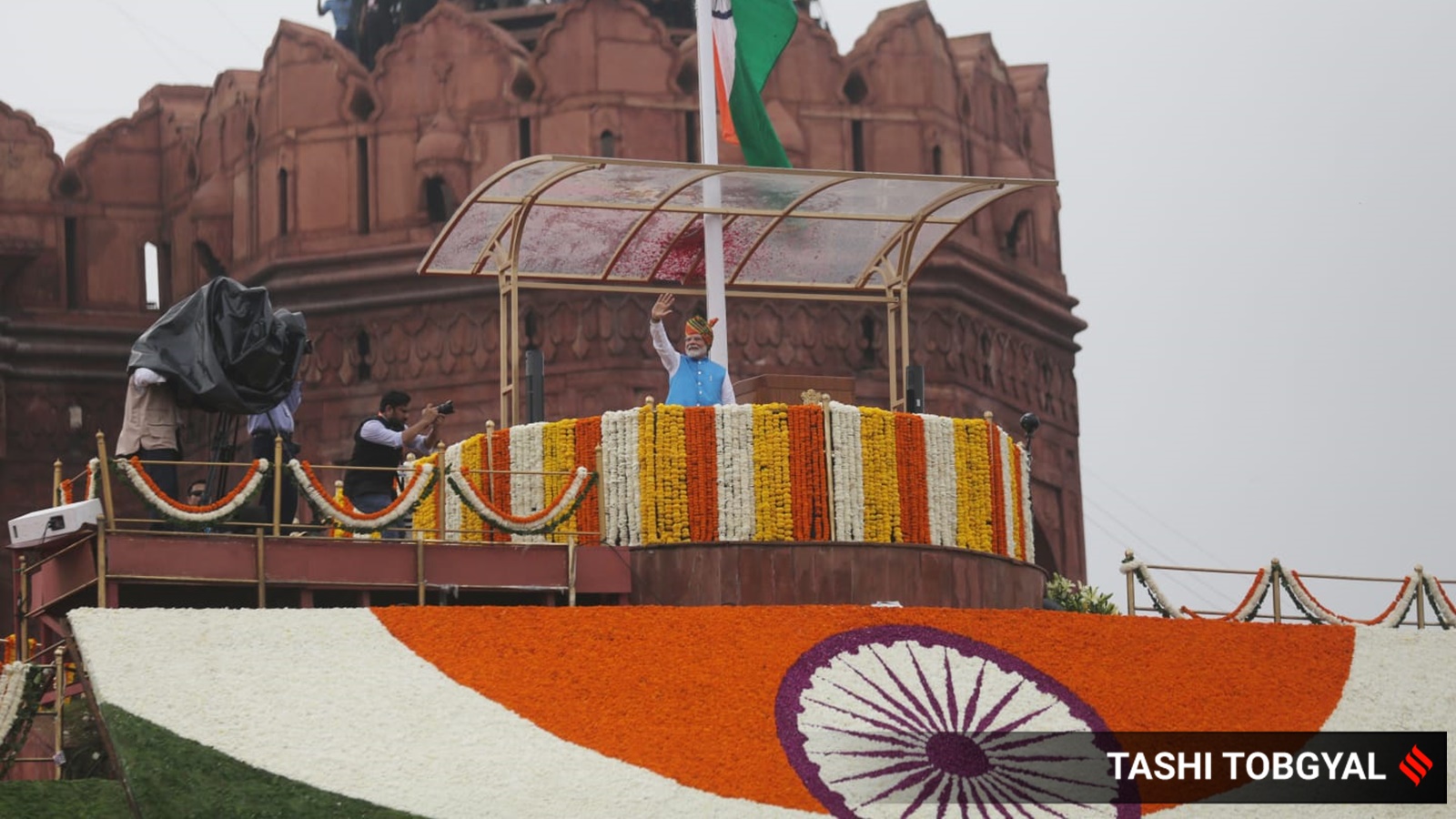On the occasion of Independence Day, Prime Minister Narendra Modi delivered a historic address from the Red Fort, outlining a clear vision for India’s future rooted in the ideological core of the nationalist movement that inspired the country’s freedom struggle. His speech emphasised the vision of a self-reliant India, reflecting the aspirations of a vibrant and modern Bharat.
Over the past decade, the BJP-led government under PM Modi has been a transformative force, challenging the political and economic structures inherited post-independence. The Prime Minister underscored how his government has shifted the governance mindset from one of people’s reliance on the state to proactive government outreach, guaranteeing basic necessities for all citizens.
In India, access to state resources and benefits has historically been mediated through complex caste and political equations, with marginalised groups like Dalits often reliant on local dominant caste leaders or parties to receive government benefits. This dynamic created a politics of unfreedom and perpetuated a new form of feudalism within a democratic system. The inadequate provision of public goods such as healthcare and education further entrenched this system, as political leaders used their discretionary power to benefit specific communities and voters. This led to resentment and rivalry among different caste groups, fuelling social unrest and hostility.
By providing direct access to welfare schemes and public services, and through the public provision of private goods based on objective criteria enabled by technological innovations like Direct Benefit Transfer, PM Modi has disrupted this politics of unfreedom at the grassroots. This approach has empowered the poor, marginalised, and Dalit communities, lifting crores out of multidimensional poverty. More importantly, it has also strengthened democracy by restoring trust in the democratic process, enabling them to exercise their political choices without fear of losing access to welfare schemes. The government’s focus on universalising entitlements has significantly undermined the old politics of caste and community, instilling a sense of confidence in the democratic system.
PM Modi also highlighted the impetus for economic and governance-related reforms. It is often overlooked that his tenure has seen the most far-reaching and extensive economic reforms ever undertaken in India, particularly the comprehensive measures announced after the Covid-19 lockdown, which were even more transformative than the 1991 reforms. Unlike the compulsions of 1991, these reforms were driven by conviction. Today, India’s youth enjoy greater economic freedom. Indian enterprises operate with fewer restrictions from archaic laws, resulting in the Indian economy being a bright spot on the global map despite multiple global economic shocks.
The PM rightly pointed out that today’s youth are more confident and ambitious, and no longer satisfied with incremental changes. This new-found confidence, rooted in belief in their abilities, civilisational ethos and future, is one of the most outstanding achievements of the Modi government since 2014. There is a visible attitudinal shift, with India now dreaming big, building big, and setting ambitious targets. The country has moved away from socialist delusions and towards respecting wealth creators, honouring job creators, and embracing a new vocabulary of IPOs, venture capital, and angel investors.
He also emphasised the infrastructural revolution underway in India, from metropolitan cities to remote border villages. The new generation of physical and digital infrastructure promises to transform the Indian economy and enhance the ease of living and opportunities, even in historically neglected regions like the Northeast. Today, India leads the world in public digital infrastructure, enabling financial inclusion, access to government services, education, and opportunities on a scale unmatched in history.
The speech was futuristic, focusing on emerging technologies and economic opportunities, including semiconductors, green jobs, the Green Hydrogen Mission, climate change, and environmental issues — critical areas that may not yield immediate political dividends but are essential for the country’s future. His emphasis on Indian standards becoming international benchmarks and leveraging indigenous design capabilities to produce for global markets sets the tone for the next decade, positioning India as a global industrial and manufacturing hub.
PM Modi highlighted the critical issues of the Uniform Civil Code and One Nation, One Election. For too long, discriminatory laws have persisted under the guise of “religious freedom”, and it is time they were brought under democratic scrutiny. The vibrant democracy of India has also evolved into one revolving around frequent elections, which hampers governance regardless of the political party in power at the state or Centre. By advocating for ONOE, the PM has pushed for much-needed structural reform of the political process.
The speech invoked India’s civilisational prowess, calling for a revival of the Nalanda spirit while also imagining India’s future as a space-faring nation. His speech is deeply rooted in the nationalist ideology, which envisions an economically developed, socially just, and sovereign India. This ideology, combined with a deep commitment to building a modern India that preserves the best of its history, culture, and tradition while embracing progress, offers a vision for the future that is both inclusive and sustainable. Today, the Modi-led BJP stands as the torchbearer of this vision for India, whose call for the youth to enter politics will be transformative.
The writer is assistant professor at Ramjas College, Delhi University and national vice-president of the BJP’s youth-wing



